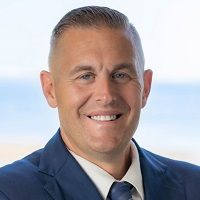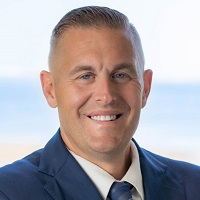Why It's Important to Know Whether Your Adviser Is a Fiduciary
You need to know that the person you trust with your finances is required to act in your best interest.

Profit and prosper with the best of Kiplinger's advice on investing, taxes, retirement, personal finance and much more. Delivered daily. Enter your email in the box and click Sign Me Up.
You are now subscribed
Your newsletter sign-up was successful
Want to add more newsletters?

Delivered daily
Kiplinger Today
Profit and prosper with the best of Kiplinger's advice on investing, taxes, retirement, personal finance and much more delivered daily. Smart money moves start here.

Sent five days a week
Kiplinger A Step Ahead
Get practical help to make better financial decisions in your everyday life, from spending to savings on top deals.

Delivered daily
Kiplinger Closing Bell
Get today's biggest financial and investing headlines delivered to your inbox every day the U.S. stock market is open.

Sent twice a week
Kiplinger Adviser Intel
Financial pros across the country share best practices and fresh tactics to preserve and grow your wealth.

Delivered weekly
Kiplinger Tax Tips
Trim your federal and state tax bills with practical tax-planning and tax-cutting strategies.

Sent twice a week
Kiplinger Retirement Tips
Your twice-a-week guide to planning and enjoying a financially secure and richly rewarding retirement

Sent bimonthly.
Kiplinger Adviser Angle
Insights for advisers, wealth managers and other financial professionals.

Sent twice a week
Kiplinger Investing Weekly
Your twice-a-week roundup of promising stocks, funds, companies and industries you should consider, ones you should avoid, and why.

Sent weekly for six weeks
Kiplinger Invest for Retirement
Your step-by-step six-part series on how to invest for retirement, from devising a successful strategy to exactly which investments to choose.
It's a word that's been in the news a lot lately, leaving many people wondering, "What's a fiduciary?"
And it's something worth wondering about because it involves an important distinction that could affect your bottom line.
First, it's important to know that there are two standards when it comes to providing financial advice: a fiduciary standard and a suitability standard.
From just $107.88 $24.99 for Kiplinger Personal Finance
Become a smarter, better informed investor. Subscribe from just $107.88 $24.99, plus get up to 4 Special Issues

Sign up for Kiplinger’s Free Newsletters
Profit and prosper with the best of expert advice on investing, taxes, retirement, personal finance and more - straight to your e-mail.
Profit and prosper with the best of expert advice - straight to your e-mail.
Fiduciaries are governed by federal regulations and must place a client's needs first, ahead of their own.
The suitability standard is different. It only requires that a financial professional make investment recommendations that are "suitable" for the client's needs. So, let's say two investment options would achieve what the client wants, but one pays a higher fee to the financial professional. He or she could recommend that investment, even though it would be more costly for the client.
Many people probably don't know whether the person giving them advice is a fiduciary or not. The reason the word has been in the news so much is that the Department of Labor has set down new rules, which will take full effect beginning January 2018, that require all advisers to adhere to the fiduciary standard for advice on retirement accounts or qualified assets.
These new rules are meant to protect investors from unnecessary fees and to address conflicts of interest in retirement advice. According to the government, investors have been wasting an average of $17 billion a year in exorbitant fees. This new fiduciary rule is designed to help save middle-class families what is estimated from those costs.
Some financial advisers don't currently subscribe to this higher fiduciary standard. There are three types of advisers:
Insurance Agents and Producers: Insurance agents or producers are not the same as a financial adviser. Some insurance agents will tell you that they can advise you on your retirement and finances, when in fact, if they are licensed only as an insurance agent, they are limited to selling you only those insurance products they represent. They cannot give market-based advice. They are held to the suitability standard, not the fiduciary standard.
Broker-Dealer: A broker-dealer is someone who facilitates investment transactions. Typically they work for a large financial firm and are compensated through commissions and fees. Someone who is licensed only as a broker-dealer is not required to meet fiduciary standards. Therefore, they can recommend an investment that will make them a higher commission as long as it's "suitable" even if it could cost you, the investor, more than another product or investment that would be better for your situation.
Investment Adviser Representatives and Registered Investment Advisers: Registered Investment Adviser firms are registered either with the SEC or with applicable state agencies. Independent Registered Investment Advisers have the ability to offer investment products, and some may also be licensed to solicit insurance sales, but the products must be in the clients' best interest. All Registered Investment Advisers and their representatives are required by law to act in a fiduciary capacity. Their charges for securities transactions are often based on a percentage of investment assets under their management, rather than on commissions, and they are required by law to uphold a fiduciary standard, meaning the recommendations they make are required to be in your best interest.
Until the DOL's new fiduciary rule becomes effective, it's important for all investors and retirees to ask their current adviser, broker or insurance agent whether they are a fiduciary. This is one of the most important questions you can ask your adviser. Take caution when asking this question—some advisers may tell you that even though they are not fiduciaries, they still "act like fiduciaries."
It's not the same. To be sure no one is pushing you toward products or investments that are not in your best interest, it's important to have an adviser who is legally bound to put you first.
Keith Ellis, co-founder of SHP Financial in Plymouth, Massachusetts, is insurance licensed and has passed his Series 65 securities exam, which qualifies him to provide financial and investment advice, as well as personally manage investment portfolios as a fiduciary adviser.
Rozel Swain contributed to this article.
Investment Advisory Services are offered through SHP Wealth Management LLC, an SEC registered investment adviser. Insurance sales are offered through SHP Financial, LLC. These are separate entities, Matthew Chapman Peck, CFP®, CIMA®, Derek Louis Gregoire, and Keith Winslow Ellis Jr. are independent licensed insurance agents, and Owners/Partners of an insurance agency, SHP Financial, LLC. In addition, other supervised persons of SHP Wealth Management, LLC are independent licensed insurance agents of SHP Financial, LLC. No statements made shall constitute tax, legal or accounting advice. You should consult your own legal or tax professional before investing. Both SHP Wealth Management, LLC and SHP Financial, LLC will offer clients advice and/or products from each entity. No client is under any obligation to purchase any insurance product. SHP Financial utilizes third-party marketing and public relation firms to assist in securing media appearances, for securing interviews, to provide suggested content for radio, for article placements, and other supporting services.
Profit and prosper with the best of Kiplinger's advice on investing, taxes, retirement, personal finance and much more. Delivered daily. Enter your email in the box and click Sign Me Up.

Keith Ellis is a founding member of SHP Financial and an integral part of the growth of the company since 2003. For over two decades, he has been dedicated to helping his clients protect not only their current investments but also plan for and protect their retirement. This passion and the motivation behind it are solely attributed to his upbringing. Hard work and the value behind not only the financial investment but also the time investment were instilled in him from an early age. He proudly comes from a lineage of entrepreneurs, cranberry farmers and teachers. His learning came from a hands-on approach whether it was bagging cranberries, working at his father’s side or starting his own lawn care business at 9 years old.
-
 Dow Adds 1,206 Points to Top 50,000: Stock Market Today
Dow Adds 1,206 Points to Top 50,000: Stock Market TodayThe S&P 500 and Nasdaq also had strong finishes to a volatile week, with beaten-down tech stocks outperforming.
-
 Ask the Tax Editor: Federal Income Tax Deductions
Ask the Tax Editor: Federal Income Tax DeductionsAsk the Editor In this week's Ask the Editor Q&A, Joy Taylor answers questions on federal income tax deductions
-
 States With No-Fault Car Insurance Laws (and How No-Fault Car Insurance Works)
States With No-Fault Car Insurance Laws (and How No-Fault Car Insurance Works)A breakdown of the confusing rules around no-fault car insurance in every state where it exists.
-
 For the 2% Club, the Guardrails Approach and the 4% Rule Do Not Work: Here's What Works Instead
For the 2% Club, the Guardrails Approach and the 4% Rule Do Not Work: Here's What Works InsteadFor retirees with a pension, traditional withdrawal rules could be too restrictive. You need a tailored income plan that is much more flexible and realistic.
-
 Retiring Next Year? Now Is the Time to Start Designing What Your Retirement Will Look Like
Retiring Next Year? Now Is the Time to Start Designing What Your Retirement Will Look LikeThis is when you should be shifting your focus from growing your portfolio to designing an income and tax strategy that aligns your resources with your purpose.
-
 I'm a Financial Planner: This Layered Approach for Your Retirement Money Can Help Lower Your Stress
I'm a Financial Planner: This Layered Approach for Your Retirement Money Can Help Lower Your StressTo be confident about retirement, consider building a safety net by dividing assets into distinct layers and establishing a regular review process. Here's how.
-
 The 4 Estate Planning Documents Every High-Net-Worth Family Needs (Not Just a Will)
The 4 Estate Planning Documents Every High-Net-Worth Family Needs (Not Just a Will)The key to successful estate planning for HNW families isn't just drafting these four documents, but ensuring they're current and immediately accessible.
-
 Love and Legacy: What Couples Rarely Talk About (But Should)
Love and Legacy: What Couples Rarely Talk About (But Should)Couples who talk openly about finances, including estate planning, are more likely to head into retirement joyfully. How can you get the conversation going?
-
 How to Get the Fair Value for Your Shares When You Are in the Minority Vote on a Sale of Substantially All Corporate Assets
How to Get the Fair Value for Your Shares When You Are in the Minority Vote on a Sale of Substantially All Corporate AssetsWhen a sale of substantially all corporate assets is approved by majority vote, shareholders on the losing side of the vote should understand their rights.
-
 How to Add a Pet Trust to Your Estate Plan: Don't Leave Your Best Friend to Chance
How to Add a Pet Trust to Your Estate Plan: Don't Leave Your Best Friend to ChanceAdding a pet trust to your estate plan can ensure your pets are properly looked after when you're no longer able to care for them. This is how to go about it.
-
 Want to Avoid Leaving Chaos in Your Wake? Don't Leave Behind an Outdated Estate Plan
Want to Avoid Leaving Chaos in Your Wake? Don't Leave Behind an Outdated Estate PlanAn outdated or incomplete estate plan could cause confusion for those handling your affairs at a difficult time. This guide highlights what to update and when.